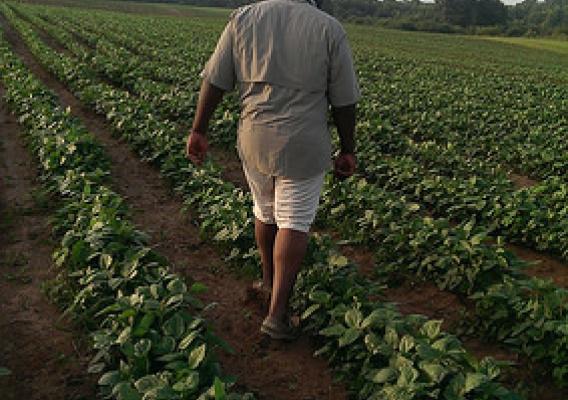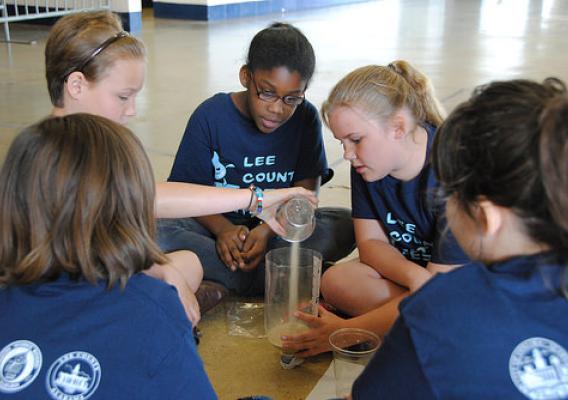This post is part of the Science Tuesday feature series on the USDA blog. Check back each week as we showcase stories and news from USDA's rich science and research profile.
This was not your typical class trip. The group of agriculture students from Honduras who visited USDA’s National Soil Dynamics Laboratory (NSDL) in Auburn, Alabama, were given tours of a one-of-a kind research facility that features, among other things, 13 soil bins, about the length of football fields, that look like huge outdoor bowling lanes. These gigantic soil bins have a special purpose: they are used to study the effects of farm machinery on the soil.
The NSDL, operated by USDA’s Agricultural Research Service (ARS), has played a key role over the years in helping farmers in southeastern United States produce quality food in sustainable, economical and environmentally friendly ways. Built in 1935, the NSDL was the world’s first full-size outdoor laboratory for tillage tools and traction equipment. Work there has influenced the design of almost all modern agricultural equipment and is credited with spawning the scientific discipline of soil dynamics. The site has been designated as an historic landmark by the American Society of Mechanical Engineers and the American Society of Agricultural Engineers.








